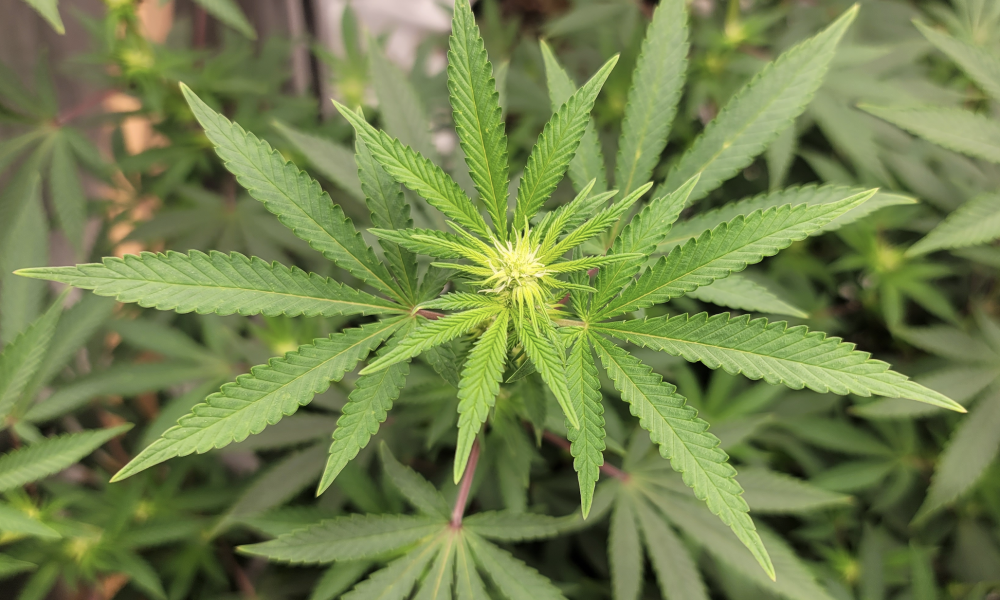The governor of Pennsylvania is proposing to legalize and tax adult-use marijuana as part of his 2023-2024 budget request, estimating $188 million in annual revenue from cannabis by 2028.
As several lawmakers are circulating cosponsorship memos about plans to introduce legalization legislation this session, Gov. Josh Shapiro (D) is making the administrative push for the reform.
The executive budget that he released on Tuesday proposes to impose a 20 percent tax “on the wholesale price of [marijuana] products sold through the regulated framework of the production and sales system, once legalized.”
Assuming that sales begin on January 1, 2025, the budget estimates that the state would generate about $16 million in cannabis tax revenue that year, increasing to $64 million in 2026, $132.6 million in 2027 and $188 million in 2028.
Shapiro, who previously served as Pennsylvania’s attorney general, campaigned on legalization during last year’s gubernatorial election and has also talked about his intentions to expand on his predecessor’s work in granting clemency to those who’ve been criminalized over marijuana.
Shapiro’s proposed budget legislation, while including expected revenue from legalization, does not contain any provisions to actually effectuate the policy change. That will be up to lawmakers.
The prospects of enacting legalization increased in the Keystone State after Democrats took control of the House following last year’s election. Republicans have maintained control of the Senate, however, but there are certain GOP members like Sens. Dan Laughlin (R) and Mike Regan (R) who’ve backed reform.
Laughlin also recently sent a letter to state law enforcement, urging officials to take steps to protect gun rights for cannabis consumers, particularly medical marijuana patients, in light of a federal court’s recent ruling on the issue.
Lawmakers have been distributing cosponsorship memos on various legalization proposals over recent months, giving a sense of what might advance through the legislature this session.
Two of the memos—one from Rep. David Delloso (D) and another from Sen. Marty Flynn (D)—described enacting legalization through a state-run system, as was proposed in a bill in 2019 and as former Gov. Tom Wolf (D) signaled he supported in 2020.
—
Marijuana Moment is tracking hundreds of cannabis, psychedelics and drug policy bills in state legislatures and Congress this year. Patreon supporters pledging at least $25/month get access to our interactive maps, charts and hearing calendar so they don’t miss any developments.
Learn more about our marijuana bill tracker and become a supporter on Patreon to get access.
—
Delloso said wrote in his memo last month that “permitting private companies to sell cannabis in Pennsylvania could allow large corporations to take over the cannabis industry, putting profits before the well-being of our communities.”
Flynn similarly said that using the state store system in contrast “will not only ensure the safety and integrity of cannabis sales in the Commonwealth, but also will prevent large, out-of-state corporations from dominating the industry.”
Meanwhile, Reps. Dan Frankel (D) and Donna Bullock (D) circulated a cosponsorship memo in January about forthcoming cannabis legalization legislation that doesn’t mention utilizing a state-run model.
“It’s time to regulate and tax this major crop product in service of the health and well-being of Pennsylvanians,” they wrote. “Our proposal will create a legal and regulatory framework structured to control and regulate the cultivation, processing, transportation, distribution, delivery and sale at retail of cannabis and cannabis products.”
Laughlin and Sen. Sharif Street (D) filed a legalization bill in 2021, as did Reps. Jake Wheatley (D) and Frankel. But neither cleared the legislature by the end of the session.
Regan, who chairs the Senate Law and Justice Committee, hosted a series of hearings last year on the need to legalize cannabis.
Wolf, the former governor, came around to adult-use legalization during his tenure and eventually became a vocal advocate for the reform, alongside then-Lt. Gov. John Fetterman (D), who is now serving in the U.S. Senate.
But their efforts did not materialize with Republicans in control of both chambers at the time.
Top Intelligence Official Says Past Marijuana Use Is Not Disqualifying For Security Clearance In Interest Of Recruiting ‘Talent’
Photo courtesy of Mike Latimer.
Read the full article here









